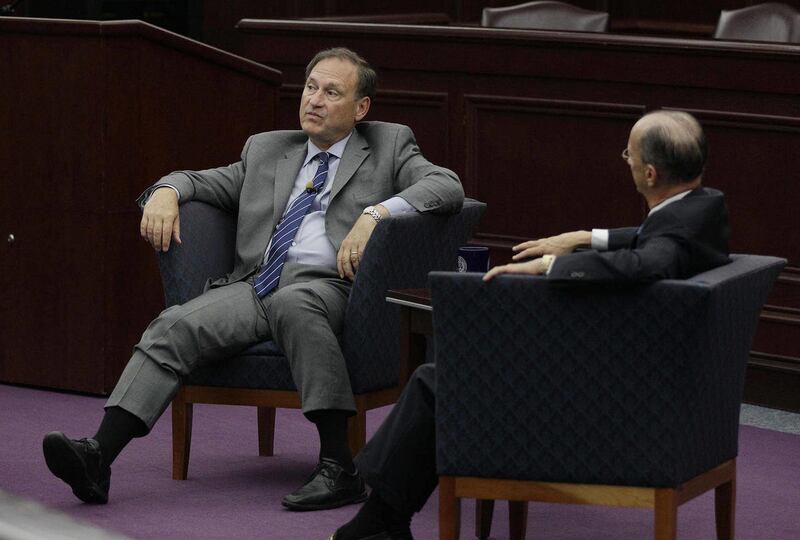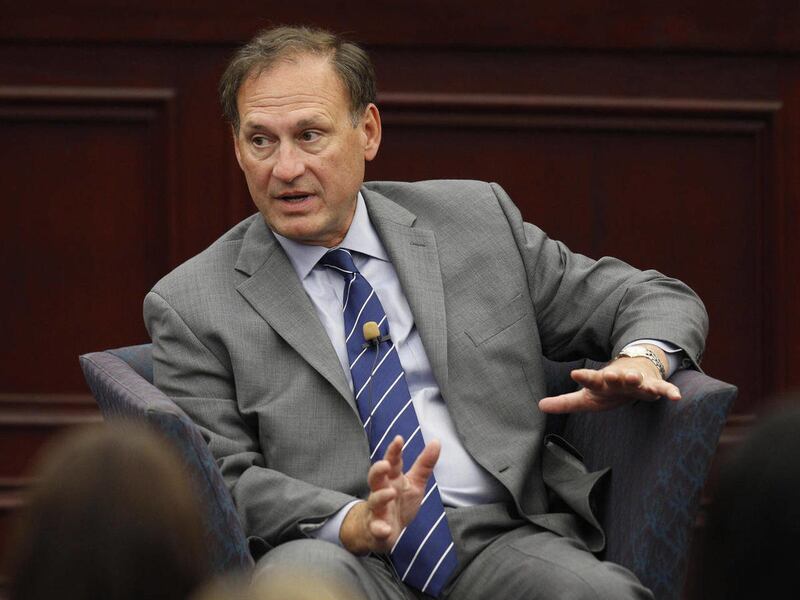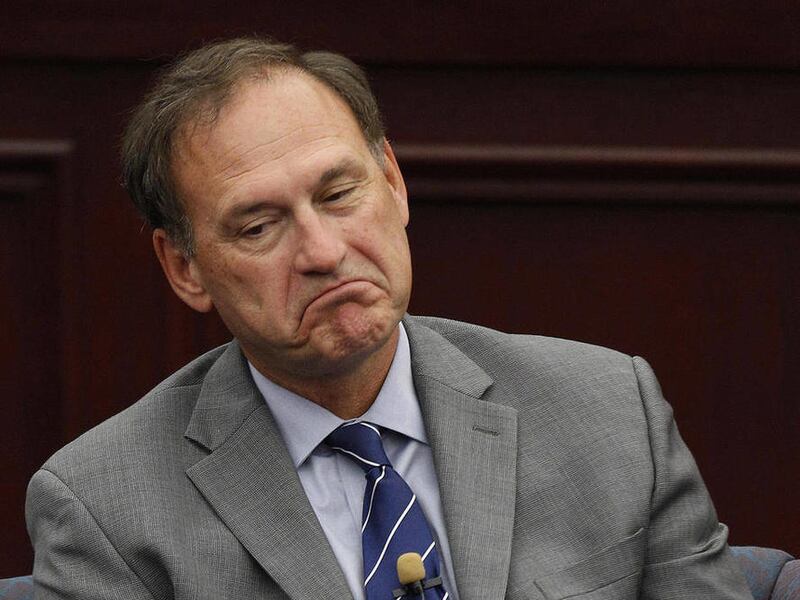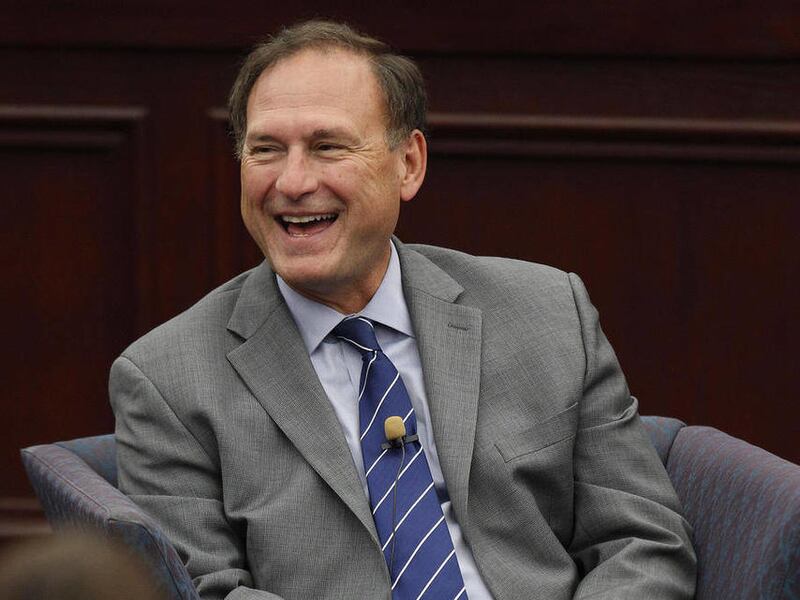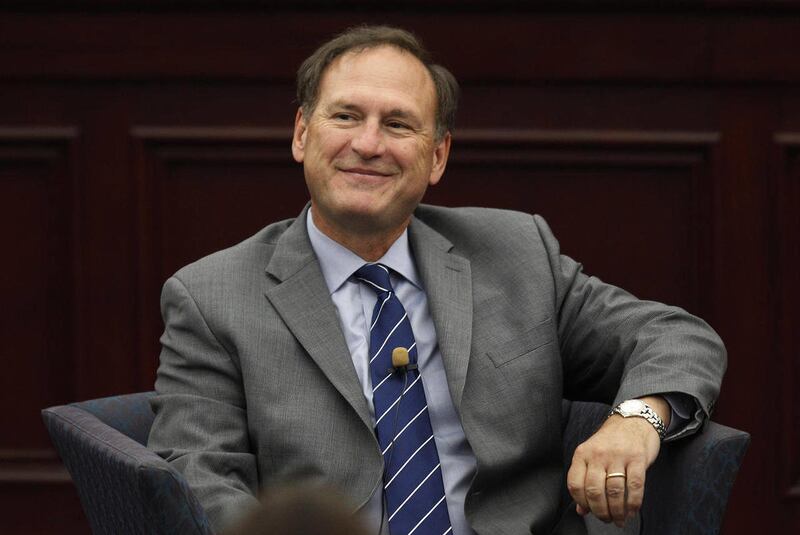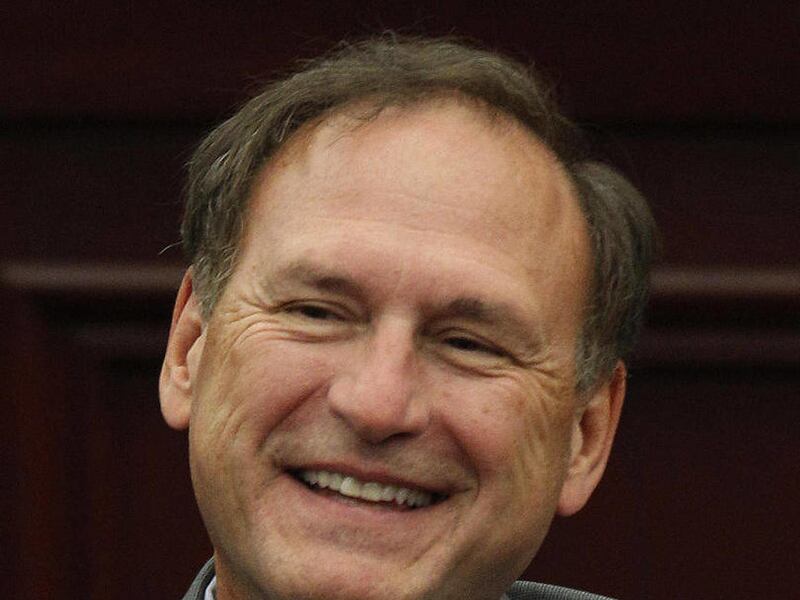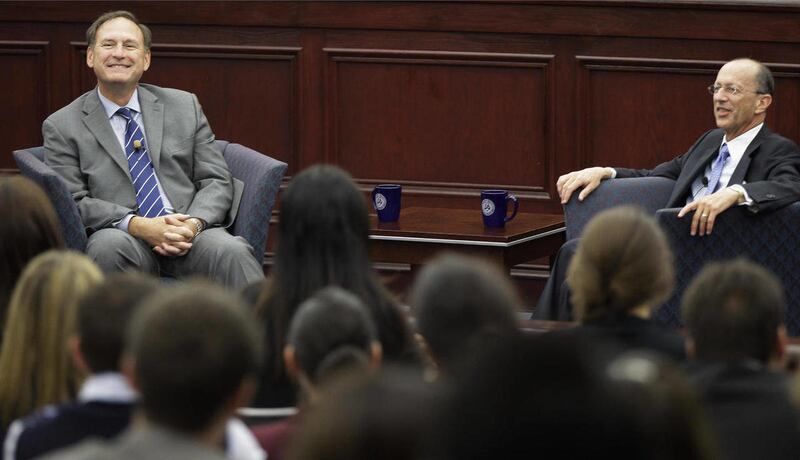BRISTOL, R.I. — U.S. Supreme Court Justice Samuel A. Alito Jr. expressed frustration Friday at what he said were inaccuracies in the media about the court and its decisions, saying it's difficult to sit by when opinions are misinterpreted.
"Sometimes it's inadvertent, and sometimes opinions are spun, just like everything else. ... They're reduced to a slogan that you put on a bumper sticker, and that's very frustrating," he told an audience of students, judges and others at Roger Williams University School of Law.
Alito cited the Citizens United ruling, which freed corporations and labor unions of most limits on political spending, saying it involved a complex area of elections law and application of First Amendment law.
"Campaign finance is very complicated, so it's easy to get it wrong, and sometimes people get it wrong inadvertently," he said.
Still, he said it's not a good idea to fire back at those who misunderstand a ruling.
"We speak through our opinions," he said, adding, "we can't engage in a back-and-forth with people."
Alito famously shook his head and mouthed the words, "Not true," during President Barack Obama's 2010 State of the Union address to Congress, when he criticized the Citizens United ruling.
Alito said he was surprised when he joined the court to find his work much more public than his prior duties on the U.S. Court of Appeals, where he said he was accustomed to a degree of anonymity. There's much more media scrutiny of the Supreme Court, he said.
"They read things into the questions," he said.
He also remarked that some of his colleagues had gone on shows such as Charlie Rose and "The Daily Show."
"This is the closest I get," he said of his comments at the university.
Alito related a story told by a visiting justice from the Supreme Court of Canada who said that in his country, reporters are briefed on new court rulings inside a locked room.
"I thought this was a wonderful idea. Why don't we implement this in the United States? Until I found out that at the end of the process they actually unlock the door and they let them out," he joked.
Alito also said justices on the court occasionally change their mind after casting their vote in a decision. He said about once a term, the outcome of a case changes during the opinion writing process.
"It's not a change of position by the opinion-writing judge, but it's a change of position by others on the court. When you read the majority opinion and you read the dissent, and you say, 'Well, the dissent actually seems to be correct,' and then a vote can change. That does happen," he said.
When asked about the violent protests spreading in the Muslim world over an anti-Islam film, Alito would not comment directly on the First Amendment issues surrounding the video and said he had not seen it. But he touched on the difference between American laws on freedom of expression and those of many other countries, such as Germany and Canada, which he said limit those rights in accordance with the needs of a Democratic society.
"Our law is very speech protective, much more so than most of the rest of the advanced democracies," Alito said.
Alito joined the court in 2006 after being appointed by President George W. Bush.
Friday's event was open to Roger Williams law students and alumni, as well as some public officials and a handful of media. Roger Williams is the state's only law school. In recent years it has hosted Supreme Court Justice Stephen Breyer and Justice Antonin Scalia.
Follow Michelle R. Smith on Twitter at www.twitter.com/MRSmithAP

